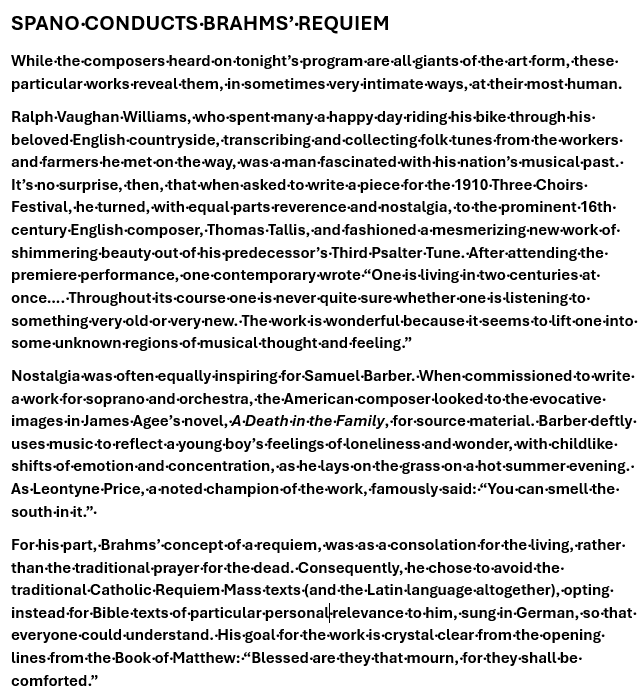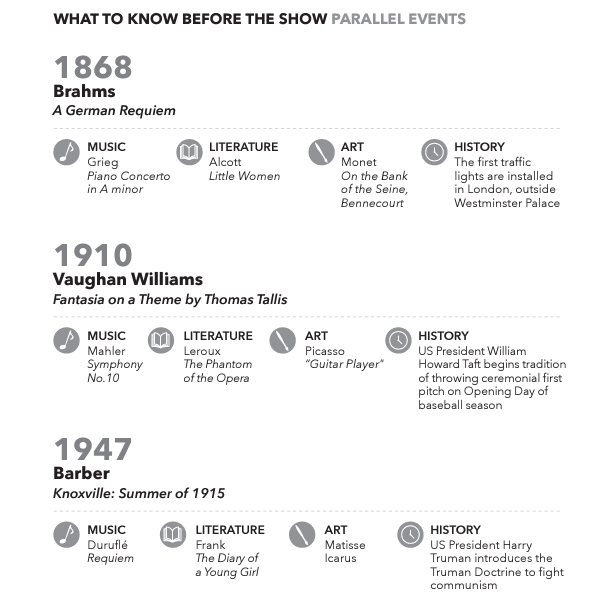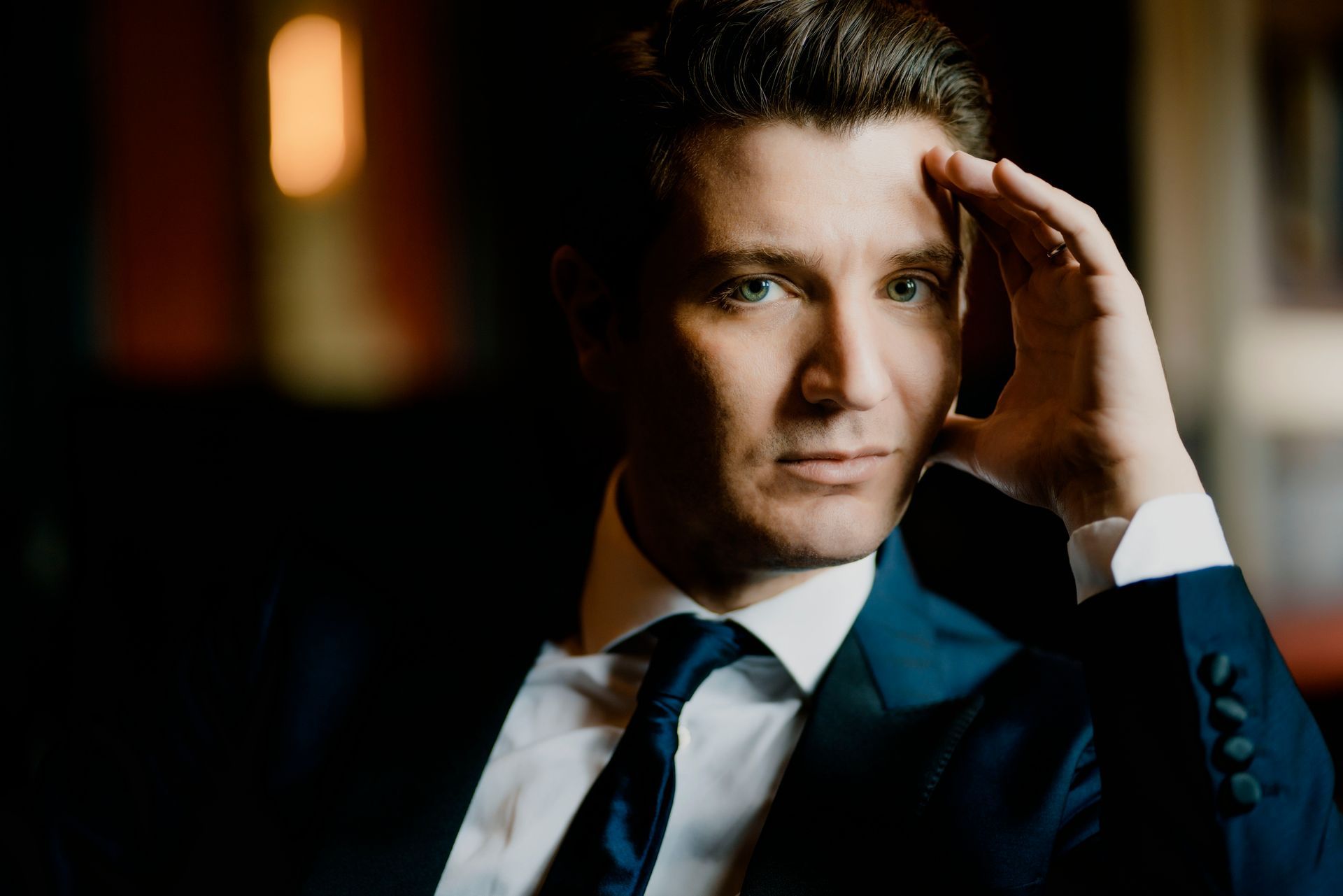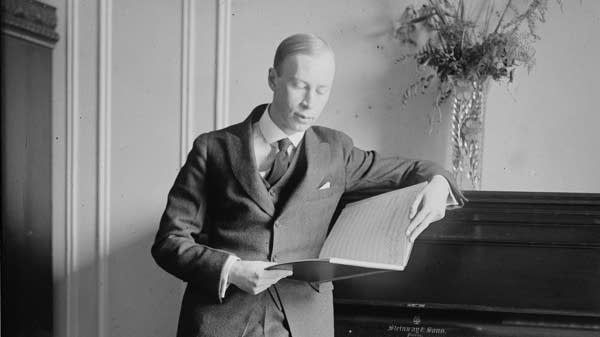THE STORY BEHIND: Brahms' "A German Requiem"
Share
On May 10, conductor Robert Spano and the Rhode Island Philharmonic Orchestra will present SPANO CONDUCTS BRAHMS' REQUIEM with Providence Singers, soprano Jessica Rivera and baritone Will Liverman.



Title: A German Requiem, op.45
Composer: Johannes Brahms (1833-1897)
Last time performed by the Rhode Island Philharmonic:
Last performed May 5, 2012 with Larry Rachleff conducting, Providence Singers and soloists Elizabeth Weigle and Randall Scarlata. In addition to a chorus, a solo soprano and a solo baritone, this piece is scored for piccolo, two flutes, two oboes, two clarinets, two bassoons, four horns, two trumpets, three trombones, tuba, timpani, harp and strings.
The Story: When Brahms was 21 years old, he attempted to write his first symphony. It was a disaster. He suffered from extreme insecurity and a fear that nothing he could ever write would be a worthy successor to the symphonies of Beethoven. So he shelved the work until, a few years later, he decided to use parts of it in his First Piano Concerto. But this concerto was such a flop with contemporary audiences that he gave up writing largescale orchestra works altogether.
It took the death of both Brahms’ mother, Christiane, and his beloved mentor, Robert Schumann, to shake Brahms out of his self-doubt. He was determined to write a requiem for chorus and orchestra that would adequately reflect the magnitude of emotions he felt at the time. From the outset, it was to be a work of grand proportions and unprecedented originality. The title "A German Requiem" signals right away that this is a different sort of piece. This is not the requiem of Roman Catholic tradition, sung in Latin. Rather it is a requiem that draws from an assemblage of biblical texts focused on spiritual healing, sung in colloquial German. In this way, Brahms offers us a requiem designed to give comfort to the living, instead of a prescribed prayer for the departed. At its premiere in 1868, Brahms finally found the triumph he sought. His Requiem not only achieved great international success, but also triggered a shift in maturity that was to mark Brahms’ work and career from then on.
Neither a mass nor strictly an oratorio, Brahms’ Requiem is a unique creation divided into seven movements. Over the course of these movements, the listener is taken on a search for enlightenment, beginning with the mourning process and ending with an ultimate promise of eternal peace. But it is the journey that fulfills us, not its destination.
The score includes prominent roles for soprano and baritone soloists as well as chorus. Robert Spano, whose long career has been deeply steeped in opera, is known for imbuing his interpretations of this watershed work with great drama and a wide-ranging sound. He takes care to illuminate all of its beautiful textures, from the intensely introspective (such as “All is flesh is as the Grass” in movement two) to the gloriously radiant (such as the soprano solo in movement five) until finally the music dies away on its opening word, “selig” (“blessed”), meaning that the dead are blessed, not in Paradise, but in the hearts of the living.
Program Notes by Jamie Allen © 2024 ALL RIGHTS RESERVED
Recommended Recordings:
If there can be a definitive recording of Brahms' German Requiem, that distinction might go to Otto Klemperer and the Philharmonia Orchestra in their classic 1961 recording (linked below.) Herbert von Karajan recorded it no less than four times. All are beautiful, but his mid-1970's recording (EMI/Warner) has the finest singing by Jose van Dam and Anna Tomowa-Sintow.
Tickets start at $20! Click HERE or call 401-248-7000 to purchase today!







